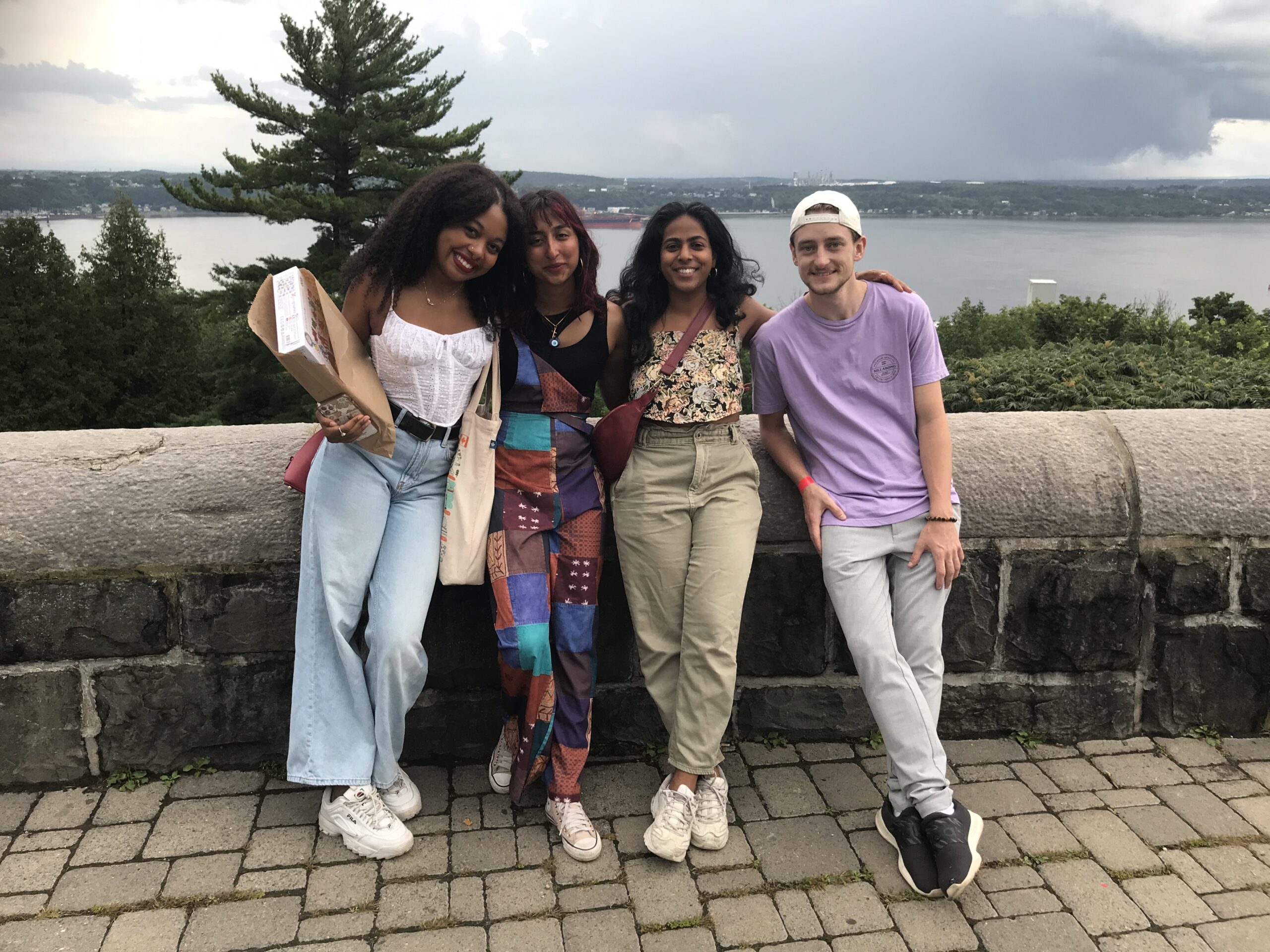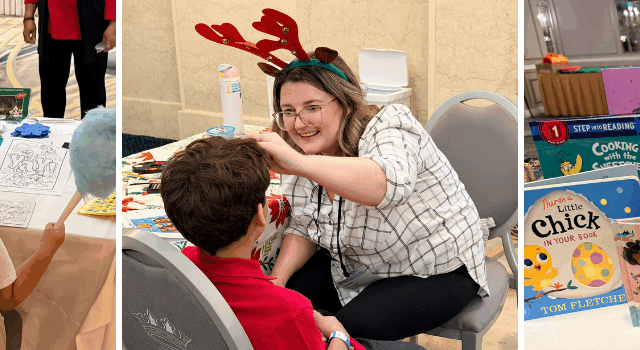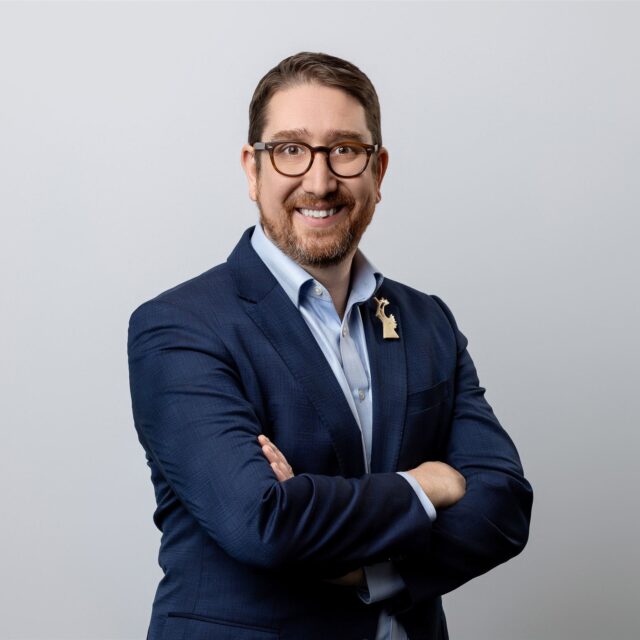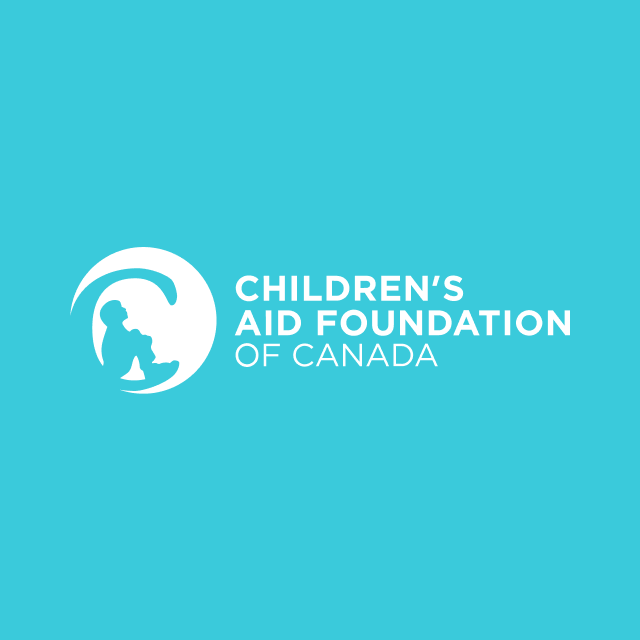For youth who have experienced the child welfare system, the traditional idea of family can often feel distant or even painful. Through chosen family, friendships, and community support systems, young people like Samidha have redefined family and created lifelong meaningful connections.
As a former youth in care, what does family mean to you?
My identity and experiences from care broaden my perspective on family. Before and even while I was in care, I had this narrow lens of what I considered family. It was very focused on nuclear family, like parents, siblings, grandparents. Because of the experiences I’ve gone through in care, over time I’ve realized that it’s more about the essence of what family brings, whether you get that from biological family or from external sources – it would be the essence of love, of care, of support and fun. And a lot of things can give you that: friends, communities, and for me it’s also books and movies and experiences which can teach you so much. You’ll learn things from books. You’ll learn things from experiences. And when you can’t get that from your family, you just have to expand your mindset and get that from the world itself.
How have you adapted that definition of family to include the village that supports and champions you?
The earliest realization I had about the expansion of that nuclear family mindset was in high school. I had such a good core group of friends, and I’ve had friends before, but nothing like this. And at some point, I realized, not only do I have fun with my friends but we support each other and share experiences together. That was my first relationship where it felt like family.
And later I got involved with Children’s Aid Foundation of Canada (CAFC) and that community aspect came in. It meant having safe space to go to, having support, having financial help available – a lot of things that biological family would normally provide.
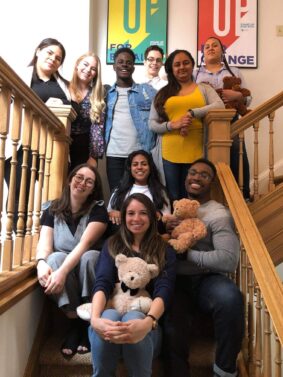
How has your experience in care influenced your perspective on family and how you define it?
My experience in care hurt my perception of family so it started from pain and hurt, and then it grew into this healing process. I don’t want to neglect the pain because that was part of my journey of how much family can also hurt.
Moving from foster home to foster home and watching different families and how they interact with each other, how they treated me, really did impact what I want in my own family in the future and what I seek to be as a person and what I look for in the family that I’ve created, which includes my friends, my communities. Love, commitment, and caring and showing that in your everyday actions.
Can you share a little bit of your journey toward building your own sense of family and support systems?
I think I was 15 when it really hit me that, at the end of the day, some people will have empathy and care and some people might not, but it’s my life to live. It was the first real realization that I was my own responsibility and my first support system in many ways. I knew I was not in a good place and that my life can have really terrible outcomes, and there are a lot of things that are not within my control. Realizing that was so important. And then I had to commit myself to try to maximize my outcomes and prioritize what I needed to do for long-term benefit.
I also really leaned on the resources available to me but I had to advocate for myself and be vocal about what I wanted. It became really important to make sure that I knew my rights and the system’s responsibility to me. And in university, I learned about scholarships from Children’s Aid Foundation of Canada. That was such a big thing, having that financial support every year.
There’s also the emotional part with prioritizing your friendships, learning how to be a good friend. That was a whole process, learning how my trauma and lack of family can influence and damage or harm my relationships. Jealousy was a big part that I had to learn to deal with. I remember realizing in grade 12 that I can’t be jealous of my friends and I need to work on that. How can I empathize with my friends and their struggles without inserting my perspective? Doing therapy, reading books – it opens up your mind and makes you a more whole person because you can’t fake it. You can’t fake being a good friend and you know you need friendship to have a good support system. So the best thing to do is actually heal and be a good friend and that’s how you’re going to attract good friends.
What role, if any, has CAFC (being on our Young People’s Advisory Council [YPAC] or one of our programs), played in helping you build community or family?
The first thing was obviously the scholarships, but from there I got involved with the Foundation pretty heavily – I joined YPAC and became an ambassador. Joining YPAC was amazing because we built so many friendships. We don’t know each other’s journeys but we shared this common experience of being in care. I made some really good friends on YPAC and being an ambassador really allowed us to connect and brought us all together. It was also an avenue for us to speak about our lives and make our voices heard.
Do you have any advice for other youth in care who may be struggling to find their sense of community?
I think it’s really important to acknowledge and be aware of your situation. And then commit to improving your circumstances. I think making that intentional decision really helps because while obviously by default you’re going do it, I think it subconsciously leads you to make certain decisions or seek out certain situations and opportunities to continue improving. Otherwise, you’re kind of on default mode and that’s not always going be optimal in many ways.
Also, be gentle with yourself and actually explore what self-love is through your entire life. It’s not something you just achieve and then you stop. It’s something that has to be continued. I think we have to love ourselves and that can be really hard. But just even opening up that conversation, saying I love myself. Even if maybe you’re not there yet.
Cherish your resources and friendships. There are good things out there and good people out there. Having a good support system is really important because it allows you to actually focus on the meaningful emotional bonds, which you need to have a good life.
